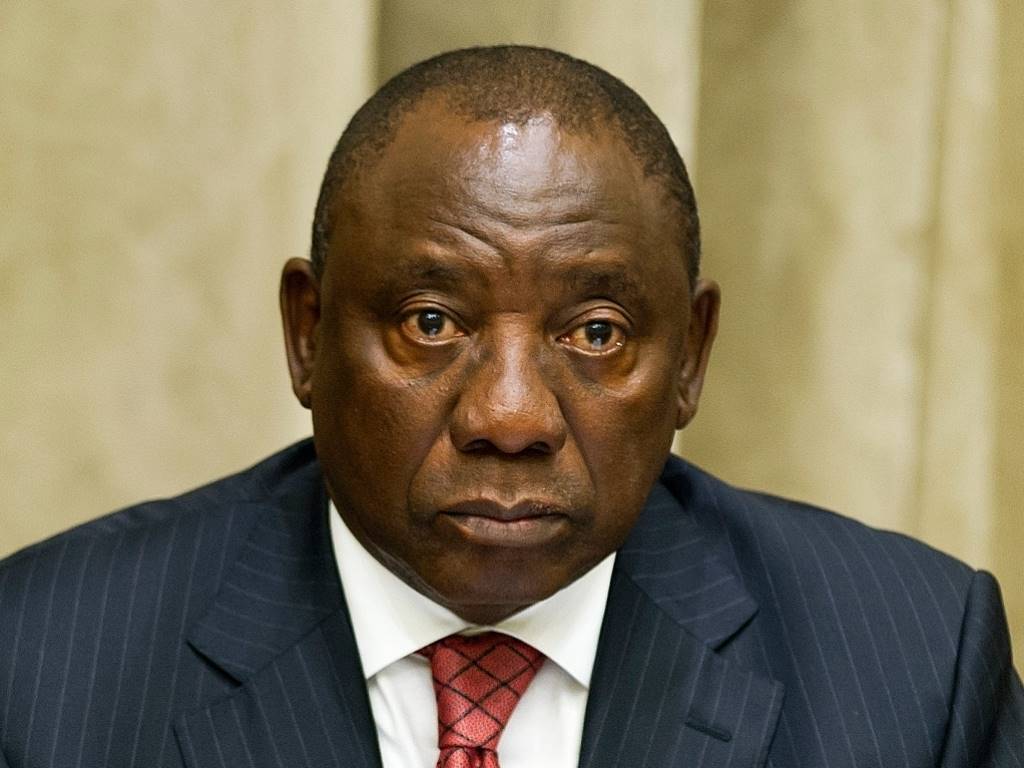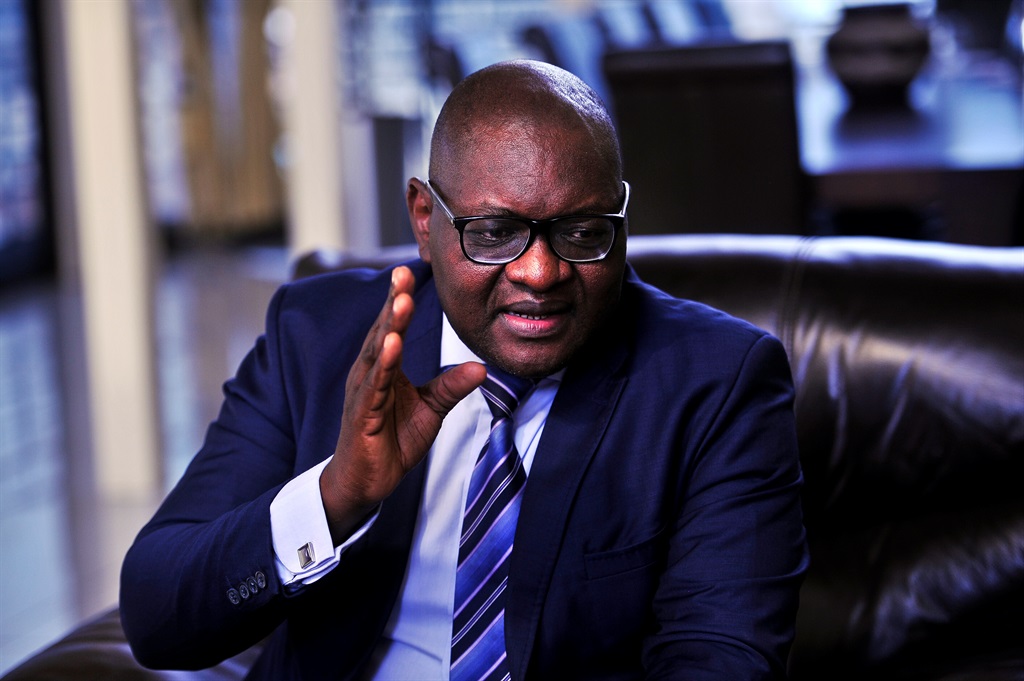
President Cyril Ramaphosa, Gauteng Premier David Makhura and Finance Minister Tito Mboweni were, recently, each forced to attempt to run to the next base as the intersection of an ailing economy, competing expectations and a litany of belligerents compelled each to cross the Rubicon.
Although – in baseball – no two runners are allowed to stay on one base at one time, the interplay of Ramaphosa’s state of the nation address, Makhura’s state of the province address and Mboweni’s budget speech made for a hitherto unseen political spectacle.
Let me explain.
In baseball, a forced run arises when a base runner is compelled to vacate his or her time-of-pitch base – and thus try to advance to the next base – because the batter has become a runner.
In the context of our political economy, Ramaphosa, Makhura and Mboweni, executive heads of national and provincial government, came out to bat to try to placate the dire and competing interests of a divided society under the glare of an anxious global financial market and irascible peacetime revolutionaries.
First to bat was Ramaphosa who delivered a sobering, yet assuring, message aimed at calming societal fears while advancing his party’s political agenda. In his address, the president reiterated his administration’s commitment to roll out the National Health Insurance plan, tackle crime and corruption, and invest massively in education.
Ramaphosa seems to have succeeded in his endeavour to reassure a restless, weary and, understandably, untrusting populace with his measured delivery.
It was left to Ramaphosa’s deputies to lift the ruling party’s political and fiscal petticoats of his troubled administration.
Ramaphosa’s address was well received, although it was also criticised as thin on details.
On the eve of Mboweni’s much-anticipated address, I found myself driving past the Scaw Metals steel factory in Germiston – which, sadly, has become a pale shadow of its former self – when I tuned into the car radio to listen to Makhura’s state of the province address.
Scaw is a fitting microcosm of the dire state of our manufacturing sector. It was with this in mind that I listened intently to Makhura’s address and held on to each word he uttered.
Read: Cannabis is king in Gauteng: Makhura says the industry will create jobs
As if on cue with my sojourn to the East Rand industrial precinct, Makhura unfurled his provincial government’s plans to “implement a reimagined industrial strategy”.
Makhura’s government’s plans included expanding the auto manufacturing base; investing in the build infrastructure; redeveloping the (practically fallow) township industrial parks from Babelegi in the far north to those neatly scattered across the West Rand and elsewhere; developing a new inland port presumably in Johannesburg or Ekurhuleni; investing in rail infrastructure and integrating transport infrastructure; enhancing technology diffusion through investments in the digital economy; and continuing the roll-out of education and housing infrastructure.
To try to enumerate Makhura’s commitment in full would be an arduous exercise, suffice it to say that his address served as a report back on some of the groundbreaking projects his government had committed to in the past.
These included the aerotropolis apparently taking shape in Ekurhuleni, and plans around the much-lauded digital city in Lanseria.
Crucially, Gauteng’s plans to spur the growth of the digital economy rest squarely on its ability and commitment to embrace an innovative collaborative digital ecosystem framework.
Such a framework would assure access to the mainstream marketplace – especially by disadvantaged small enterprises – through the equitable distribution of the abundant, but skewed in its provision, digital sovereign wealth in our economy.
It was left to Mboweni to act as a sweeper to Ramaphosa and Makhura’s commitment to improve in the economy.
This left many people wondering which side the nation’s acclaimed pilchard-meal minister’s – aka Mboweni – budget would lean towards come Wednesday.
Would Mboweni lean towards the left where nothing is right, per the economic fearmongers, or towards the right where, according to the dystopians among us, nothing is right?
Thus it seemed Mboweni’s budget speech would, through force of impossible appeasement, be cobbled on a wing and prayer.
Drawing from the First Epistle to the Corinthians, commonly attributed to Paul the Apostle, Mboweni’s forward-looking but practical budget sought to address exigent fiscal issues that had arisen in the recent past.
In his much-anticipated, pro-growth speech, the nation’s chief chef assiduously projected much-needed confidence in the local economy.
To the surprise of many pundits, Mboweni left taxes, particularly VAT, untouched.
Mboweni might have deftly assuaged the financial markets and political sceptics alike, but questions remain on the revenue collection system’s capacity and capability to close the massive R63 billion tax revenue shortfall resulting from acute job losses in the economy.
He left no one in doubt about the need, and government’s commitment, to engage further with organised labour formations which remained restless despite the pro-growth and employment-creating initiatives announced by him and Makhura.
Evidently, the interplay between the exigent need to address the economic malaise, on the one hand, and organised labour’s default disposition to protect jobs and union dues, on the other hand, precipitated union federation Cosatu’s threat to bring the public sector on its knees through labour strikes.
This was despite the fact that the envisaged cuts in the civil service wage and benefits would affect both low- and high-income earners.
I must confess that my initial reflexive reaction to Cosatu’s stance, informed by my default prejudices and dislike for ill-timed turmoil, seems to have been misplaced and unfair.
It was only after I watched Cosatu’s spokesperson Sizwe Pamla’s interview on the SABC that I fully appreciated organised labour’s disappointments and frustrations with the apparent about-turn by their tripartite alliance partner over the wage deal concluded a few years ago.
Read: Cosatu: Mboweni broke trust between government and workers
I have since become more sympathetic to their argument and posture.
However, the irony seems to be lost on Cosatu, considering the massive financial interests it holds in a litany of outsourced or public-private partnerships that rolled out the massive public road infrastructure, for example, the Gauteng Freeway Improvement Project.
Notwithstanding, only the heartless would be impervious to the pain inflicted on ordinary workers by state capture, irreverent politicians and narcissistic union bosses.
In the end analysis, it wasn’t a fluke that Mboweni’s broth even delighted the opposition benches, including the kindergarten group, was not a mean feat for the straight-shooting minister.
The spotlight on the political baseball diamond will now shift to various government departments and state-owned enterprises that have been given the task of delivering on the new (and repackaged) promises.
Ramaphosa, Makhura and Mboweni swelled my heart with their forward-looking messages, filled with rare optimism and courage, it behoves us all to lend a helping hand to efforts aimed at rebuilding our ailing economy even if we didn’t help wreck it.
Khaas is founder and president of the SA SMME Forum. Follow him on Twitter @tebogokhaas
 | ||||||||||||||||||||||||||
Get in touchCity Press | ||||||||||||||||||||||||||
| ||||||||||||||||||||||||||
| Rise above the clutter | Choose your news | City Press in your inbox | ||||||||||||||||||||||||||
| City Press is an agenda-setting South African news brand that publishes across platforms. Its flagship print edition is distributed on a Sunday. |




 Publications
Publications
 Partners
Partners









